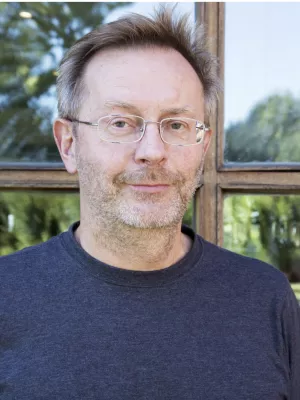
Ronny Berndtsson
Professor, Dep Director, MECW Dep Scientific Coordinator

Review of Slow Sand Filtration for Raw Water Treatment with Potential Application in Less-Developed Countries
Author
Summary, in English
Providing safe drinking water to people in developing countries is an urgent worldwide water problem and a main issue in the UN Sustainable Development Goals. One of the most efficient and cheapest methods to attain these goals is to promote the use of slow sand filters. This review shows that slow sand filters can efficiently provide safe drinking water to people living in rural communities not served by a central water supply. Probably, the most important aspect of SSF for developing and less-developed countries is its function as a biological filter. WASH problems mainly relate to the spread of viruses, bacteria, and parasites. The surface and shallow groundwater in developing countries around urban areas and settlements are often polluted by domestic wastewater containing these microbes and nutrients. Thus, SSF’s function is to treat raw water in the form of diluted wastewater where high temperature and access to nutrients probably mean a high growth rate of microbes and algae but probably also high predation and high efficiency of the SSF. However, factors that may adversely affect the removal of microbiological constituents are mainly low temperature, high and intermittent flow rates, reduced sand depth, filter immaturity, and various filter amendments. Further research is thus needed in these areas, specifically for developing countries.
Department/s
- Centre for Advanced Middle Eastern Studies (CMES)
- MECW: The Middle East in the Contemporary World
- Division of Water Resources Engineering
- LTH Profile Area: Water
Publishing year
2023-06
Language
English
Publication/Series
Water (Switzerland)
Volume
15
Issue
11
Document type
Journal article review
Publisher
MDPI AG
Topic
- Water Engineering
Keywords
- developing countries
- microbes
- safe drinking water
- slow sand filtration
- turbidity
Status
Published
ISBN/ISSN/Other
- ISSN: 2073-4441

